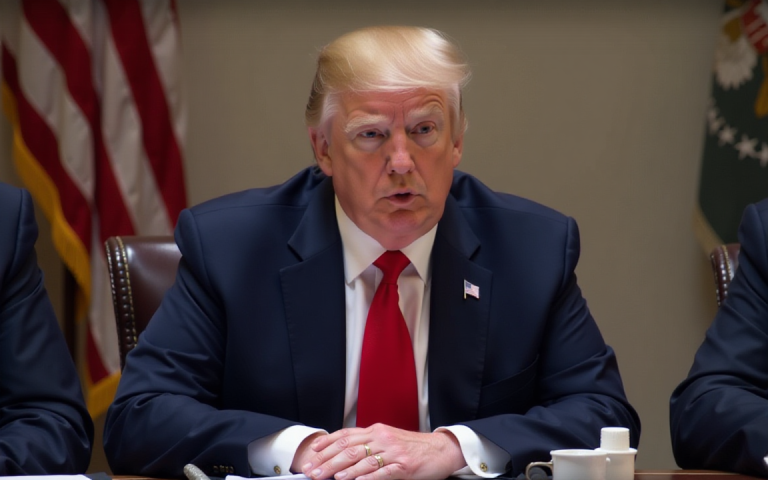US stocks soared on Thursday after the White House indicated that the July 9 tariff-pause deadline imposed by US President Donald Trump is ‘not critical’ and can be extended.
Press Secretary Karoline Leavitt indicated that the July timeline for striking new trade deals isn’t set in stone, saying the deadline “is not critical.”
She stated:
“The president can simply provide these countries with a deal if they refuse to make us one by the deadline.”
Leavitt said that Donald Trump has the option to set a reciprocal tariff rate he believes would favor the US and its workforce.
While an extension remains on the table, she stressed that the final call rests with the President.
The development may come as a major relief for various nations facing high tariffs from the United States and working hard to secure a trade deal.
Multiple signals
Donald Trump had earlier warned of slapping a 50% tariff on the European Union but agreed to hold off until July 9 after European Commission President Ursula von der Leyen asked for more time to negotiate a deal.
Meanwhile, a separate 90-day pause on broad US tariffs, temporarily reduced to 10% is scheduled to lapse on July 8.
Investors welcomed Thursday’s comments from Press Secretary Karoline Leavitt, viewing them as a possible sign that Donald Trump might ease up on his hard deadlines.
Earlier, White House economic adviser Stephen Miran said that countries engaged in sincere trade talks were likely to see deadline extensions making sudden tariff increases less likely.
During his recent testimony to Congress, Treasury Secretary Scott Bessent struck a similar tone as he indicated that there’s a strong chance Donald Trump will delay the July 8 cutoff.
Breathing room for emerging economies
For China, the extension may offer a brief breathing room from the looming threat of steep tariff hikes.
So far, Washington and Beijing have only managed to reach a narrow agreement focused on rare-earth metals, falling short of a broader trade deal.
The pause can provide China with some space to keep negotiating without facing immediate pressure, but if discussions lose momentum, the possibility of future tariffs still hangs in the air.
With the deadline now potentially flexible, Indian negotiators have a narrow window to make progress and avoid the steep levy.
However, sources familiar with the discussions say that key sticking points particularly around agricultural imports and digital trade barriers remain unresolved.
While both sides have expressed interest in strengthening economic ties, a breakthrough will likely depend on political will from the highest levels.
A possible extension to the July 9 deadline can be a chance to recalibrate trade strategies and engage more deeply with US negotiators.
But trade officials across the globe remain cautious, knowing that without concrete agreements in place, the risk of tariff hikes could return quickly.
The post Donald Trump’s July 9 tariff deadline ‘not critical,’ can be extended: White House appeared first on Invezz

